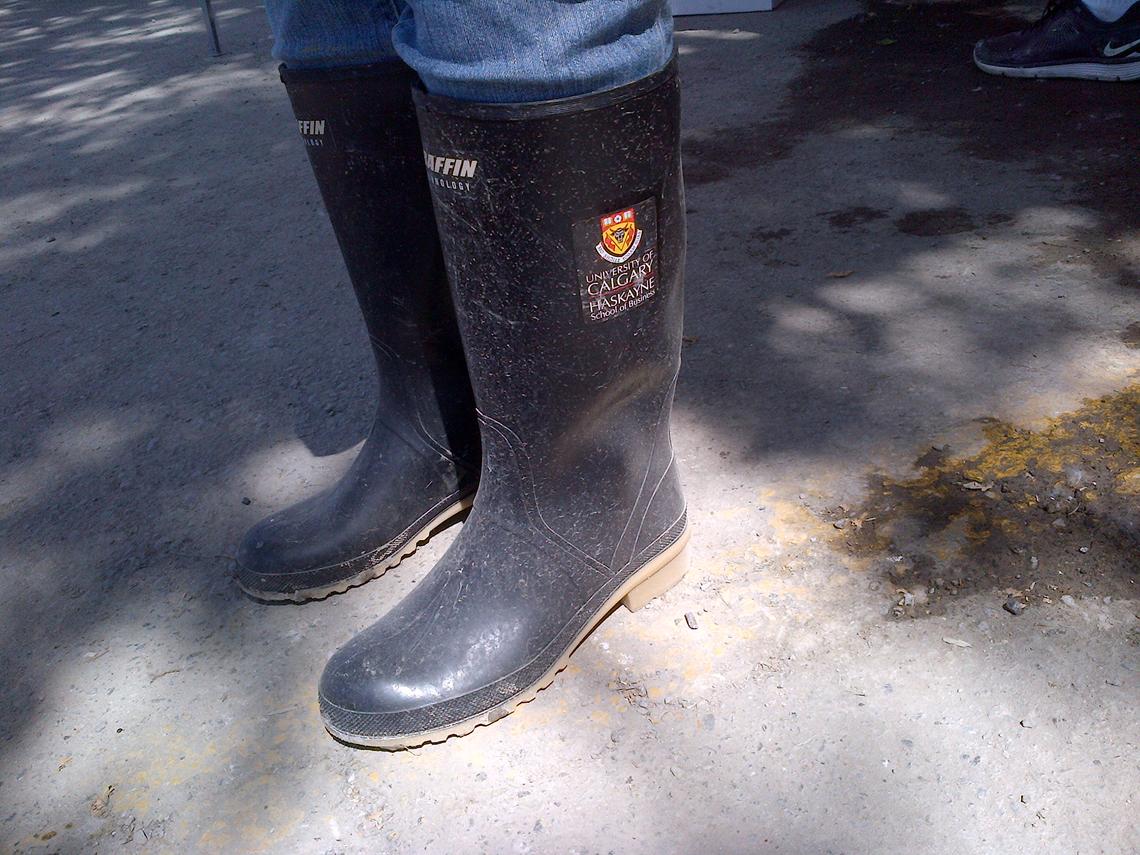June 20, 2014
Haskayne built a bridge to businesses during flood recovery

Haskayne members gathered truckloads of supplies for those hard-hit by the 2013 flood.
Linda Dudek
In the aftermath of the devastating 2013 floods, the University of Calgary’s Haskayne School of Business was able to build bridges.
Students, faculty and staff joined friends, neighbours and strangers to help clean up and rebuild homes in the days immediately after the disaster. And Haskayne also joined together to help shell-shocked business owners through outreach efforts, including a Flood Insurance 101 discussion board and face-to-face public meetings.
“We felt the number one question from small business would be that they didn’t know who to call or who to reach out to,” said Jim Dewald, dean of the Haskayne School of Business. A brainstorming session was held to determine immediate, short-term and long-term efforts.
The Flood 101 site posted information for businesses and homeowners facing unprecedented damage and confusion over what was covered, with experts available from faculty and alumni.
Damage daunting to small business
“One of the things we know is that [flood] coverage is extremely limited and subject to definitions that no one ever reads until it happens,” said Norma Nielson, Haskayne’s chair of insurance and risk management. Haskayne is the only school in Western Canada to offer a specialization in risk management and insurance, with expertise built over the last 20 years.
Many small businesses don’t survive the toll of natural disasters and the scope of this recovery was staggering.
“This was daunting for many small business owners,” said Rita Egizii, Haskayne’s director of community outreach at the time of the flood. “It opened the business school to a whole different population base.”
Egizii described it as breaking down a cultural barrier between the “ivory tower” and the many individuals who operate small operations, but may never have had formal business training.
“We want to be seen as a welcoming place where everyone can come and engage,” she said. “A community is people who speak with one another without barriers, when communication and conversation can happen between different socio-economic groups.”
Key outreach activities included the Calgary Business Recovery Task Force and the Recovery Expo, where Haskayne partnered with the Chamber of Commerce and other organizations to offer expertise and advice to businesses unprepared for and unaware of what might be considered basic risk protection.
The most powerful lesson came when Dewald and Haskayne alumnus Brett Wilson, MBA ’85, were speaking on a panel. “A lot of people had never put together a contingency program to draw on in times of emergency,” said Dewald. “It was eye-opening.”
Expertise and advice welcomed
Business owners posed questions about coping with lost inventory and insurance procedures as some faced the prospect of starting over. Answers and advice from the Haskayne experts were welcomed in hard-hit restaurant district of the Mission neighbourhood, where many operations endured massive amounts of flood water and a week without power, said Jennifer Rempel, executive director of the 4th Street Business Revitalization Zone. “There were a lot of connections made at that symposium and some of those connections are still happening today,” Rempel said.
The most gratifying aspect of the expo was that it built bridges with entrepreneurs and small business operators who had never considered Haskayne a resource, from massage therapists to award-winning chefs.
Alumni also played high-profile roles in the broader recovery effort. This included Calgary Mayor Naheed Nenshi, BComm ‘93, whose master communicator performance in the wake of the devastation earned him kudos and fans across Canada. Calgary Foundation CEO Eva Friesen, MBA ’00, established a flood recovery fund through the Calgary Foundation that raised more than $9 million and has, to date, dispersed $6.2 million in grants to 90-plus organizations supporting long-term rebuilding efforts across southern Alberta.
Looking back, Dewald sounds like a proud coach as he speaks of his team of all-star performers in the flood aftermath and the stronger sense of connection within Haskayne. Needs expressed in the recovery meetings will be incorporated into entrepreneurial curriculum.
“We learned we could be much better organized in helping business,” he said.
“If it happened again, I’d probably throw up a kiosk on 4th Street. I’d be motivated to organize something more immediate.”
